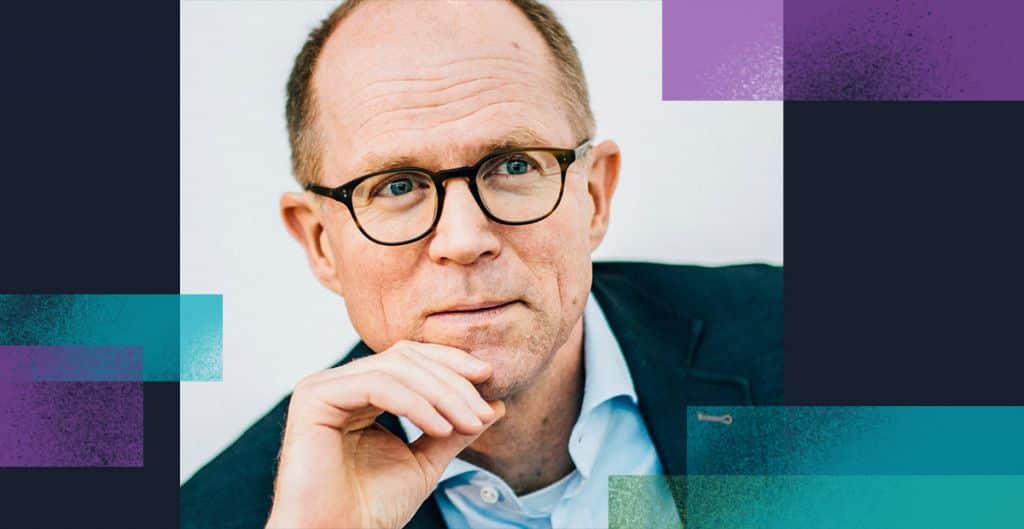Newsletter Signup - Under Article / In Page
"*" indicates required fields
Søren Møller, Managing Investment Director at Novo Seeds, discusses how the firm’s investment strategy has changed over time to support the creation of biotech startups in the Nordics.
Søren Møller has a PhD in molecular biology from the Technical University of Denmark. After spending some time as a postdoc at Stanford University in the US he went on to work in the biotech industry. After working in R&D for various companies including BioImage, Exiqon, and Novozymes, he moved over to work as Managing Investment Director of Novo Seeds in 2011.
Set up in 2017, Novo Seeds is the early-stage investment arm of Danish investment fund Novo Holdings, a holding company owned by the industrial and pharmaceutical giants Novozymes and Novo Nordisk, respectively. The firm is now one of the top investors in biotech startups in Denmark and the Nordics.
Early-stage investment is crucial for building successful biotech startups, but finding the best approach for both investors and startup founders that will lead to successful companies in the long term can take practice, says Møller.
You have an academic background. Why did you move over to industry and then join the investment side?
I come from an entrepreneurial family. My dad was an entrepreneur, not in biotech but in designer furniture, but I wanted to have an academic career. Then I did a postdoc at Stanford. It was in the late 90s, where everybody was starting companies in Silicon Valley. That inspired me to think, ‘I better go to industry and not pursue this professor angle or an academic career.’
When I got the opportunity to join Novo Seeds, I think it was exactly the right job for me being exposed to many different things. And in the Novo Group having the opportunity to really make a lot of impact on more than one company was super exciting for me.
As a biotech CEO, or an employee in a company, your job is to do the best you can, and work super hard to make this particular idea, concept, or science translate and be super successful. From the investor side, you have to think about how to spend your investment money in the best possible way.
That conundrum, or different way of looking at things, actually creates a lot of value. Companies push forward with their great ideas and investors are more on the skeptical side saying, ‘are you sure this is worth the investment?’ and then through the dialogue you often come to better decisions, in my view.
What is your investment approach at Novo Seeds?
What we’re doing in Novo Seeds is focusing on building new companies. That’s how we’ve set the team and what we are all passionate about.
We do this in three different ways. One is the classical academic spin out where faculty comes to us with a good idea, we work with a team and get excited about the opportunity and add our network to help create a great company. This may be board members, investors bringing the syndicate together… the typical seed approach.
We’re also increasingly looking for spin outs from pharma, I think many VCs do that. We just did one that was announced last December called Hemab, it’s in the hemophilia and rare bleeding disorder space. We sourced that deal and worked with the founder team to create a good company and it is now out and fundraising for a big Series A with us being the first investor in.
We also use a more proactive approach. We say we would like to build a company, for example in the neurodegeneration space, see if we can find a team and some great academic innovation, and put this together to make an exciting company. That is what we are increasingly doing.
What are the advantages of a proactive approach?
In the 10 plus years I’ve been here in Novo Seeds we have been refining our company’s early stage investment model. We started out being reactive and saying ‘let inventors and entrepreneurs come to us’. And that’s been super valuable. But we also see a value in a more proactive approach given the network and the knowledge we have today.
We identify an exciting space and see if we can find information to create an exciting company. Then look for entrepreneurs, scientists and founders to do exactly that.
Over the last five years, we have increased our network and investment in an entrepreneur in residence program, where we have had good people on dedicated projects working with us to build exciting companies.
For an early stage investor, the dilemma is always if you have X amount of money you want to put at risk, how much money do you want to spend on data and how much money do you want to spend on the team? The team is super important, so we are increasingly investing upfront in good management teams.
Are you seeing more interest in life science entrepreneurship now compared to 10 years ago?
I think entrepreneurship has become super cool. And I think that’s great, because it is a great place to be and I’m super excited about it myself. We do see a lot of talented people wanting to start their own biotech company.
The old prejudice that this was not something that was super interesting has gone away. Many of the talented young postdocs and very strong professors see the opportunity and see that it can be done. You can work with your science, and you can spin out a company that may develop treatments to serious diseases. I think that’s super motivating from an academic perspective.
What advice would you give to a young scientist who wanted to start a company?
Work with a good professor and look for the gems with them. I think there’s a lot of them. At least our experience is that you can get a long way by digging and polishing ideas that you didn’t think were there from the beginning, but when you actually work with them, they come out and become super exciting.
If you’re a young entrepreneur and come to us we would work with you to get to a full team. Or if we start with one of our entrepreneur in residence relationships you may end up in a company with several founders. If this is right for you, then you’re much better at running your own company next time.
How do you source your startup teams to build companies?
We decide that we want to look into a particular area — precision oncology is one area where we are actively looking, as well as gene and cell therapy and neurology — and we try to find good science and put all those pieces together. It’s also driven by some of the entrepreneurs in residence that we are working with, so they come to us to build a company with us.
We do have a lot of experienced drug developers regionally. But we try to set our teams not only consisting of Danes and Swedes, because that adds a lot of network and perspective and eventually value to the decision making that takes place as you develop as a biotech company.
We would not build a biotech company in Boston, there are investors that are much closer to that ecosystem. But I think we have increasingly shown that biotech is a global industry, and we can attract the right talent, wherever they are from, to work for a company wherever it’s located.

How does the Danish biotech ecosystem impact startup creation?
I think many countries have strong academic research and there are various incubators around and knowledgeable and professional VCs. The difference here is that the Novo group plays a big role in several aspects of that ecosystem. And the impact has been pretty profound from a local Danish ecosystem perspective.
The Novo group has a dedicated effort in investing in the local biotech ecosystem. It strengthens the academic research on top of what the government or public sectors are already doing. The Novo Nordisk Foundation has recently made a huge donation to the BioInnovation Institute, which is an incubator that provides infrastructure, support and capital to early stage companies. And Novo Holdings is part of taking that innovation and building companies out of it.
Is the stock market in the Nordics a good opportunity for biotech startups to go public?
I think this is a great opportunity for many companies. There is a choice between going early to the stock market and developing through that route, or going down the ‘professional VC’ route and then potentially listing later. Most companies that we invest in take that second route, where we go through a good significant Series A and potentially a crossover round and then list.
Once you go public, you really need to be in control of your news flow and your development. And that requires a certain maturity. Even though private investors can be tough to negotiate with sometimes, they are knowledgeable and can be persuaded by good arguments. That is more difficult in the public market if you lose the faith of the investors, so you need to be more certain about your development plan.
I think we increasingly want to set up companies that have the opportunity to go public, because that provides you with more opportunities. The way the market has evolved and will hopefully continue to be open, this is an attractive way to fund and build sustainable companies. So we think very early on, ‘what kind of topology does a company that we create need to have?’
How has biotech in Denmark changed in the last decade?
I think when we started Novo Seeds, 13 years ago, attracting rounds of more than two to three million euros was super difficult. Today we have the Adcendo’s of the world where the Series A’s are in the €50M range. That is a tremendous development.
Of course, it is fueled by the global biotech industry being more mature and having more capital, but also reflects the quality of the opportunities that we are able to incubate.
When we started Galecto 10 years ago it was with a very small seed investment. But that company has evolved and done big investment rounds and is public now in the US. What we have taken from that journey is the knowledge that once you have a good team and good science, you can accelerate that development significantly by getting enough money around the table from the get go.






